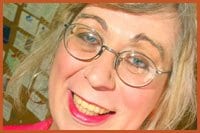The chair of Ottawa’s community centre project resigned on Jan 15; he had been the head of the project for less than a year. In a one-paragraph e-mail obtained by Capital Xtra, he cites “personal/private” reasons and explains that “vice-chair Jessica Freedman shall act as chair as accounted for in the by-laws.”
The centre, from its AGM in September until now, has failed to fill their senior board. Calls in Capital Xtra for business- and political-minded volunteers to help steer the project have been largely ignored by gay and lesbian professionals, and with the resignation of Bromilow, the community centre has lost a young and energetic gay leader.
Freedman is a former chair of the Egale Trans Issues Committee and a key organizer of Trans Day of Remembrance. She’s also the founder and facilitator of GenderQuest, a trans support group hosted by Pink Triangle Services (PTS), where she is a member of the board.
Although she says she considered taking over planning after a spring AGM, she’s now happy to spearhead the project.
“In some ways it was a surprise and it was certainly a disappointment. Everyone has a tremendous amount of respect for James,” says Freedman.
Freedman was the centre’s vice chair. According to the bylaws, the vice chair may act as chair for the remainder of the term. Those statutes also say that the board may select another member to replace officers who leave before their term is up.
The project has been dogged by a decade-long rollercoaster ride of highs and lows.
A 2002 feasibility study suggested that the Centre would require a $5-million capital fundraising campaign tapping the municipal, provincial and federal government, plus the Community Foundation of Ottawa, the United Way, the Trillium Foundation and the private sector — in addition to a major fundraising drive within the queer community.
Freedman says she doesn’t know how the centre is going to raise the capital needed, but she says that getting “middle-aged middle-class white gay men” to pay for a centre for “underserved” segments of the population is a challenge.
She says that gay men were “over-represented” on a survey that asked the community what it wanted from its centre; those priorities included recreation space for athletes, rehearsal space for performers, a coffee shop, and office space.
“Gays and lesbians are already well served,” she says. She points out that there are no full-time dedicated social workers in the city for trans or bi people — or lesbians for that matter.
“The people who are going to pay for the community centre are not the same people who are going to use it,” she says.
Gay men entering adulthood today don’t face the same challenge older gay men faced, she says.
“Your life is not oppressed the way gay men were 20 years ago,” and trans activism is 20 years behind that of gay activism, according to Freedman. The community is a victim of its own success since younger gays and lesbians don’t feel the need to fight for queer issues. The community is trending “away from collective action to solve collective problems,” says Freedman.
Aside from fundraising, a touchstone of the 2002 study was in getting community players with the deepest pockets – at the time, that was Egale, Pride and PTS — to agree to rent space in the centre once it’s established. A December meeting called by Capital Xtra associate publisher Gareth Kirkby with the AIDS Committee Of Ottawa, Capital Pride, and Pink Triangle Services sought to get such an agreement.
“At this time, there is an inability between the groups to commit to moving into a potential space, to even get them to commit to their intent — or to commit to not becoming tenants in the future,” says Kirkby. Groups need to make up their minds so that the centre project can get out of its doldrums and enter a fundraising period, he says.
But Freedman says no such commitment is necessary. “If the community centre had been present, they would not have been asked,” Freedman says. She says that the community centre only needs their “endorsement and support” right now.
“It’s not like we’re opening our doors on Jan 1, 2008,” she says.
But other developments suggest that community groups may be coalescing organically. Wayne Adams, the executive director of PTS, has looked at space in the seven-storey office building at 251 Bank; the building already houses the AIDS Committee Of Ottawa, Bruce House, Planned Parenthood, the Canadian Aboriginal AIDS Network, Capital Xtra, and the studios of several queer artists. PTS leases space at 177 Nepean on a month-to-month basis.
“It was very prudent to look at the space, but we haven’t made any decisions to move,” says Adams.
“We are very happy with our landlord,” he adds.
In the meantime, Bromilow’s departure opens another seat on the community centre’s board. According to Lyle Borden, a longtime advocate of the community centre, the project ought to fill its board.
“One of the first things I said was that we need to get a full compliment,” says Borden.
“It doesn’t help when the board has vacancies.”
The board can appoint interested members between now and its AGM, likely to be held in April. At that time, the board will be elected publicly. The next meeting will be Feb 22 at 7pm in PTS’s Bob Read Room.
“We continue to be open to people of all interests,” says Freedman.
In an e-mail, community centre treasurer Peter Zanette declined to comment.
“I am not in a position to comment at this time. If in the future I have approval to speak I will gladly contact you.”


 Why you can trust Xtra
Why you can trust Xtra


